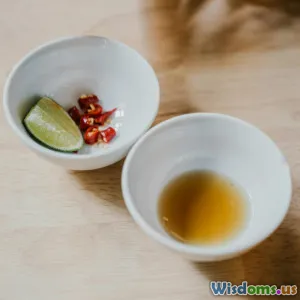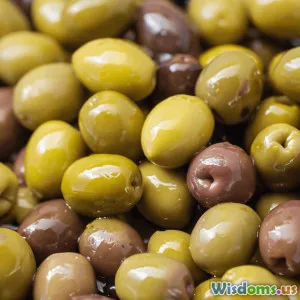
Pairing Wine with Food Like a Pro
5 min read Master the art of wine and food pairing with expert tips and insights that elevate your dining experience to new heights. (0 Reviews)
Pairing Wine with Food Like a Pro
Pairing wine with food can elevate a meal from ordinary to extraordinary. While it may seem daunting at first, understanding the principles behind wine and food pairing can lead to delightful culinary experiences. In this article, we’ll dive into the fundamentals of pairing wine with food, explore regional pairings, and provide tips to help you become a pro at wine selection for any dish.
The Basics of Wine Pairing
Before diving into specific pairings, it’s essential to understand a few key concepts that underpin successful wine pairings:
1. Balance
The primary goal of wine pairing is to achieve balance. This means that neither the wine nor the food should overpower the other. A rich, full-bodied wine may be too heavy for a delicate dish, while a light, crisp white wine might be overwhelmed by a hearty stew.
2. Flavor Harmony
Look for complementary flavors between the food and wine. For example, a wine with fruity notes can enhance the flavors of a dish that includes fruit, while earthy wines work well with mushroom dishes.
3. Acidity
Acidity is crucial in wine pairing. Wines with higher acidity can cut through rich, fatty dishes, providing a refreshing contrast. For instance, a Sauvignon Blanc with high acidity can beautifully complement creamy cheeses and oily fish.
4. Sweetness
When pairing with sweet dishes, consider the sweetness level of the wine. A sweet wine can enhance desserts but can also be overwhelming if not matched correctly. A classic example is pairing a rich chocolate dessert with a Port or a sweet red wine.
Regional Pairing Philosophy
One of the simplest rules of thumb in wine pairing is to consider the region of the food. Often, local cuisines are designed to complement local wines. Here are a few examples:
1. Italian Cuisine
Italian dishes often pair well with Italian wines. For example, a classic Chianti complements tomato-based pasta dishes, while a Pinot Grigio is delightful with seafood.
2. French Cuisine
French food and wine are made for each other. A buttery Chardonnay is a perfect match for creamy dishes like Coq au Vin, while a light Beaujolais pairs well with charcuterie.
3. Spanish Cuisine
Spanish wines like Tempranillo are ideal for rich, savory dishes like paella or grilled meats, while a refreshing Albariño can enhance the flavors of seafood.
Practical Tips for Pairing
1. Experiment
Don’t be afraid to try different combinations. Some of the best pairings come from experimentation. Keep a journal of your favorite pairings to refine your palate.
2. Consider Texture
Match the texture of the wine with the texture of the food. A rich, full-bodied wine works well with hearty, textured dishes, while lighter wines pair better with delicate foods.
3. Temperature Matters
Serve wines at the appropriate temperature: whites are generally best chilled, while reds should be served at room temperature, or slightly below.
4. Ask for Recommendations
When dining out, don’t hesitate to ask your server for wine recommendations. They often have great insights into what pairs well with the dishes you are considering.
Conclusion
Mastering the art of wine and food pairing takes practice and a bit of bravery, but the rewards are well worth the effort. By understanding the basics of balance, flavor harmony, and regional pairings, you can elevate your dining experiences. So next time you sit down for a meal, consider the wine you choose carefully, and enjoy the journey of discovering new flavors and combinations. Cheers to becoming a wine pairing pro!
Rate the Post
User Reviews
Popular Posts





















